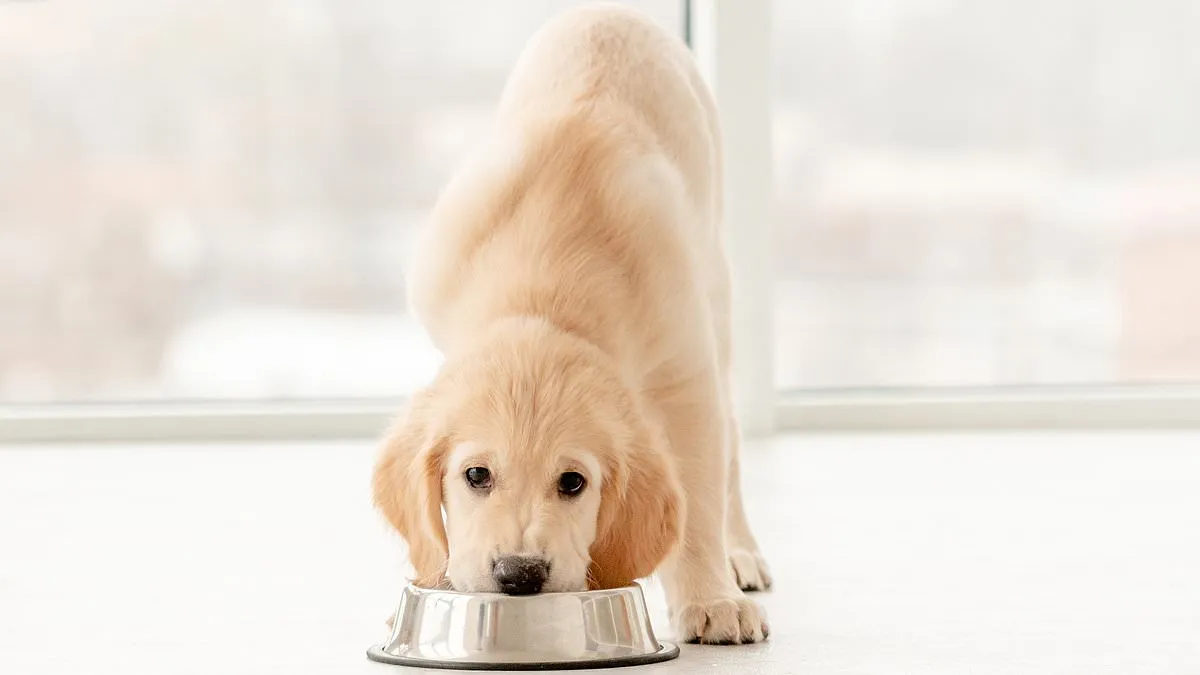
Millions of pet owners may be unknowingly endangering their beloved dogs and cats, as well as their family members, by opting for a raw food diet. Recent studies indicate that between 15 to 25 percent of dog owners and about 10 percent of cat owners—approximately 10 million Americans—choose to feed their pets raw foods, including raw eggs and meat, due to perceived health benefits. However, veterinarians strongly advise against such diets due to the significant risks involved.
Veterinarians warn that raw diets can carry serious risks of infections stemming from the consumption of raw food. One of the most concerning infections is salmonellosis caused by the Salmonella bacteria. This infection can lead to severe symptoms in dogs, including diarrhea, vomiting, fever, lethargy, loss of appetite, and abdominal pain. A 2002 report revealed alarming statistics: 80 percent of raw food samples found in dogs' bowls and 30 percent of their stool samples contained Salmonella.
Pet owners are not immune to these risks. They can become infected when handling or preparing their pets' food and neglecting proper hygiene, such as washing hands and utensils thoroughly. The bacteria can easily spread to various surfaces within the home, creating a hazardous environment for all family members, particularly those who are immunocompromised.
Pets on raw food diets often shed harmful bacteria in their feces, posing a potential risk of human disease. This shedding can persist for days after exposure, even if the pet does not display any symptoms like diarrhea. Consequently, these harmful bacteria can linger in the home for days to weeks, exposing every member of the household to potential infection.
Jennifer Larsen, a veterinary nutritionist at the University of California Davis, emphasizes that many pet owners believe their pets are healthy on raw diets, but that belief lacks scientific backing. Similarly, Antonio Varcasia, a scientist at Italy's University of Sassari, highlights the evident disadvantages and risks that both pets and their owners face when choosing raw food diets.
Despite the prevailing belief that dogs and cats should consume diets reminiscent of their wild ancestors, the reality is that modern domesticated pets have different nutritional needs. For instance, dogs do not process starch in the same manner as wolves, and house cats have distinct nutritional requirements compared to their larger relatives.
In addition to Salmonella, raw pet foods can harbor other dangerous pathogens such as E. coli, Listeria, and Campylobacter. Salmonella can lead to severe gastrointestinal issues including bloody diarrhea, abdominal cramps, vomiting, and fever, and in extreme cases, it can cause infections to spread to the bloodstream or result in fatal dehydration.
E. coli poses its own risks, causing severe stomach cramps and bloody diarrhea, particularly due to the effects of Shiga toxins that can lead to kidney failure. Listeria is particularly dangerous for vulnerable populations, such as pregnant women, newborns, the elderly, and the immunocompromised, potentially leading to meningitis, bloodstream infections, and more. Campylobacter, a leading cause of bacterial diarrhea globally, can cause intense inflammation of the small intestine, resulting in severe diarrhea and abdominal pain.
Aimee Simpson, the medical director at VCA Cat Hospital of Philadelphia, warns that some commercial raw foods, which are frozen, freeze-dried, or dehydrated, may give pet owners a false sense of security regarding their safety. Methods like freezing are not reliable for eliminating harmful bacteria or viruses, such as avian influenza.
Cases of cats falling ill or even dying from consuming contaminated raw pet food have been reported. Recently, the Los Angeles Department of Public Health announced the death of two house cats fed a raw diet contaminated with bird flu, a severe infection for felines. Furthermore, Oregon health officials reported a cat fatality due to bird flu, prompting the FDA to issue warnings after a link was found between H5N1 samples in a sick cat and a brand of raw cat food.
Feeding dogs raw or improperly cooked salmon or trout can also lead to Salmon Poisoning Disease (SPD), a dangerous condition caused by the bacterium Neorickettsia helminthoeca. This bacterium resides within a parasitic fluke that infects fish, particularly in the Pacific Northwest. After consuming infected fish, dogs may experience rapid-onset symptoms like fever, vomiting, and diarrhea, and without prompt veterinary treatment, the infection can be fatal.
In conclusion, while many pet owners might be tempted by the allure of a raw food diet for their pets, the associated risks cannot be ignored. The potential for serious infections not only endangers pets but also their human companions. Pet owners are encouraged to consult with veterinarians to ensure their pets receive a balanced diet that meets their specific nutritional needs without compromising health and safety.